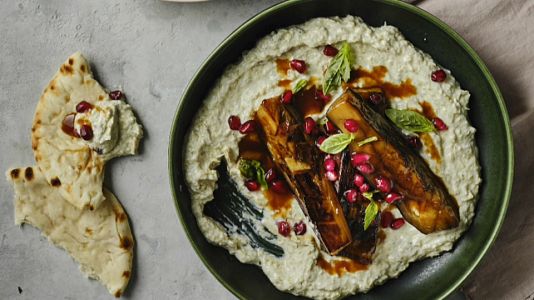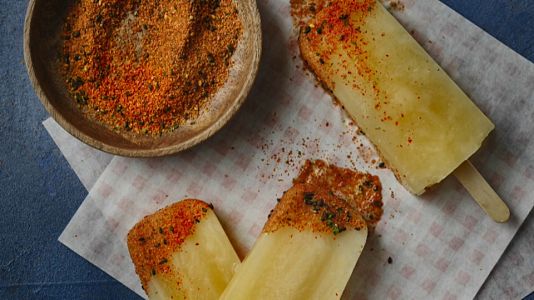A cookery book developed with sensory scientists hopes to bring back the joy of cooking for people who have lost their taste or smell due to COVID.
A loss or distortion of taste and smell has become one of the hallmarks of COVID and a new cookery book, developed with sensory scientists, hopes to help those still experiencing the side effect.
"It can be really dispiriting for so many people," said Ryan Riley who co-authored Taste & Flavour and is the founder of Life Kitchen, which provides free cookery classes for people living with taste and smell loss.
"We've been dealing with cancer patients for years with this problem and for them, it's all about trying to get them back around the table into the idea of eating and cooking. That can be the first step even before trying to tackle taste and flavour loss."
Over 120 million people have been infected with Covid-19 and 65% of them suffered smell disorders, while 10% will continue to have the issue long after recovering from the disease.
Some experience parosmia, which is when the brain doesn't detect the correct smell so foods such as chocolate, coffee, and garlic taste completely different and others have anosmia, where both smell and taste, disappear.
Professor Barry Smith, founding director of the Centre for the Study of the Senses, said: "Most people don't realise that your sense of smell gives you most of the things that we call tastes.
"In fact, the tongue gives you very little; you don't have mango receptors on your tongue and that's always because the odours are going from your mouth up to the back of the throat and up to the nose to give you the flavour.
"So when ... people say, I really can't taste anything at all, if we test them, we find they can taste salt, sweet, sour with some lemon juice or sugar but that's about all."
"We're looking at ways that we can kind of really into the palate," added Riley. "Lots of real rich umami ingredients like soy sauce or miso parmesan. And then we're looking at layering flavours, so adding citrus and brightness and things like pickled pineapple - pineapple has an enzyme that stimulates lime abduction feels very beautifully like mouthwatering."
Professor Smith explained how taste differs for people suffering from anosmia and parosmia.
"People describe coffee as like fruity sewage, and that's going to be very off-putting. So it will take a while for those senses of smell to regulate your new regenerating receptors to relearn the code.
"In the middle of that, we've got Ryan trying to provide cooking recipes for those safe foods that don't trigger the disgust response to give people enjoyment and pleasure and also the nutrition they need."
Watch the full interview in the above video player.













